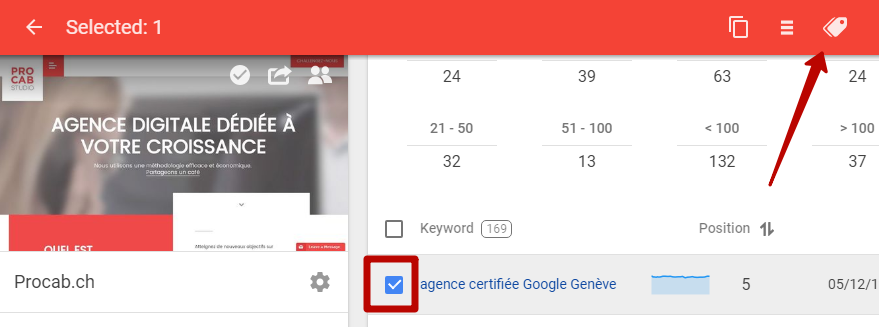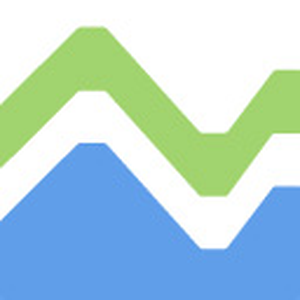Ваши комментарии
This kind of search is not supported, yet. You can select such keywords only manually.
Hi,
You can use the search bar to find required keywords:

After that select the found keywords and click on the groups button:

In the appeared dialog check the groups you want to assign.
Здравствуйте!
Сделали тестовую проверку вашего запроса, однако позиция не изменилась (>100). Ошибок в наших алгоритмах мы не обнаружили. При выполнении одного и того же запроса с разных IP адресов есть вероятность, что выдача будет отличаться, так как у Гугла много дата-центров разнесенных по всему миру. Синхронизация между дата-центрами требует определенного времени, а выдача результатов поиска для пользователей выполняется из ближайшего дата-центра. Это может быть причиной расхождений в выдаче, хотя у Гугла могут быть и другие особенности которые влияют на результаты выдачи, мы этого до конца не можем узнать. Возможно, завтра данный запрос вернется на более высокие позиции.
Hello Adrien,
To get keyword rankings we run the search request in the real browser on the micro-server and set the required location and language.
To compare keyword positions correctly you have to do the following:
- Open your browser in the incognito mode.
- Open Google homepage and set corresponding language and location.
- Run the test query in Google simultaneously with Rankinity (one-time check).
But even if you do comparison correctly, keyword positions are not always equal, since Google may use different data centers to return results (depending of the IP address). For example, Google have 9 data centers in the United States. Our queries could be processed in different data centers and we can get different results since the synchronization between data centers is not instant.
Hello,
All history of dates and positions are stored in the position_history field.
Example:
{
"items": [
{
"id": "5a47d9fc6b170b766c7b9816",
"created_at": "2017-09-01T12:19:48.000-05:00",
"keyword_name": "keyword 1",
"keyword_weight": 1,
"position": 101,
"position_boost": 0,
"position_updated_at": "2017-12-25T02:20:28.000-06:00",
"position_best": 87,
"position_best_updated_at": "2017-10-22T12:19:48.000-05:00",
"position_lowest": 98,
"position_lowest_updated_at": "2017-09-14T12:19:48.000-05:00",
"group_ids": [
"5a47d9f76b170b766c7b9578"
],
"groups": [
"Group 1"
],
"position_history": [
[0, 92],
[1, 87],
[2, 99],
[3, 98]
]
}
]
}The first values in the position_history arrays 0, 1, 2, 3 represent the number of days after the keyword creation date created_at. The second values 92, 87, 99, 98 represent position values. We use these values to draw the graphs.
Please let us know if you will need further help.
This is a very interesting idea, but we need some time to research this task and estimate the difficulty.
We currently do not have any experiance with DataStudio and cannot provide you a quick help.
Please read the DataStudio documentation to learn more about integration possibilities:
https://developers.google.com/datastudio/connector/get-started
Hello,
We have added ability to receive weekly reports with visibility values for all projects.
You can enable this option in the Account Settings: https://my.rankinity.com/account
Сервис поддержки клиентов работает на платформе UserEcho


We have added this feature to our task list. Thank you!